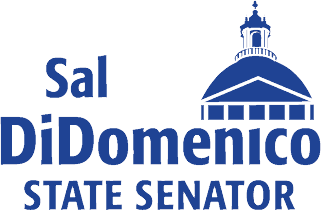DIDOMENICO AND SENATE COLLEAGUES APPROVE NEXT- GEN CLIMATE POLICY
BOSTON— Senator DiDomenico and his colleagues in the Massachusetts State Senate on Thursday advanced three bills that boldly tackle the contributing factors of climate change, chart one of the most aggressive courses of action against global warming in the country, and pave the way for a clean energy future for all of its residents.
An Act Setting Next Generation Climate Policy and two companion bills — one dealing with electrifying fleets and another updating energy efficiency standards for appliances — passed overwhelmingly and with bi-partisan support.
“We know that time is running out to take bold action on climate change, and this ambitious package is a direct response to the incredible advocacy we have heard from our constituents, especially young activists,” said Senator DiDomenico. “Combating the climate crisis is an ongoing process, but I am proud of the steps we have taken to reduce emissions and create a more sustainable future for generations to come. We as a Commonwealth owe a big thank you to Senator Michael Barrett, Senate President Karen Spilka and Senate Ways & Means Chair Michael Rodrigues for their dedication to this issue and critical work on this comprehensive climate package.”
Key provisions of the climate policy package include:
Setting a statewide greenhouse gas limit for the year 2050 of “net zero” emissions. To achieve this, An Act Setting Next-Generation Climate Policy requires the state to hit near-term limits in 2025, 2030, and every five years thereafter; set sub-limits for transportation, buildings, solid waste, natural gas distribution, and other major sectors; and make implementation plans that are “clear, comprehensive, and specific.”
Establishing the Massachusetts Climate Policy Commission. The commission would be a new, independent public watchdog to oversee government’s handling of the unfolding crisis of climate change. Commissioners will be charged with offering a nonpartisan, science-based view of the problem as it plays out in Massachusetts with its attendant natural, economic, and demographic impacts and risks.
Reflecting the price of carbon. Under the bill, the Administration would be free to choose among various market based forms of pricing carbon. Any carbon pricing mechanism must be implemented to minimize the impact on low-income households, disadvantaged communities, and vulnerable manufacturing sectors.
Jumpstarting efforts to supply low-cost solar electricity to low-income communities. To reverse the failure of state programs to incentivize solar energy projects in low-income neighborhoods, as well as spur job creation, the bill requires the Department of Energy Resources (DOER) to set aside future solar allocations for such neighborhoods.
Letting cities and towns adopt a “net zero” stretch energy code. The bill allows the state to support communities that choose on their own to move away from fossil fuels as the source of heating for new buildings.
Nudging natural gas utilities to adapt. The bill authorizes utilities to test technology and pipelines that generate and transport “renewable thermal energy,” an emissions-free way to heat buildings that draws on the relative warmth of temperatures below ground.
Strengthening executive branch oversight of MassSave. The bill directs the Secretary of Energy and Environmental Affairs (EEA) to set emissions reduction goals, in advance, for each three-year plan the utilities formulate for MassSave. It requires the DPU, at the conclusion of each three-year plan, to certify how much the plan actually contributed to meeting the Commonwealth’s greenhouse gas emission limits.
Tightening the alignment between MassSave and emissions limits. The bill requires electric utilities to include an explicit value for emissions reductions whenever they calculate the cost-effectiveness of a MassSave offering.
Setting a deadline for converting MTBA buses to all-electric power. An Act to Accelerate the Transition of Cars, Trucks, and Buses to Carbon Free Power directs the MBTA to limit bus purchases and leases to zero-emissions vehicles beginning in 2030, and to aim for an all-zero-emissions fleet by 2040, to reduce transportation-related emissions in city neighborhoods.
Offsetting the Trump Administration’s efforts to slow progress on efficient appliances. An Act Relative to Energy Savings Efficiency updates Massachusetts appliance standards to improve energy and water efficiency standards for common household and commercial appliances, helping to conserve energy and save consumers and businesses money.
During debate on the Senate floor, the bill was strengthened through amendments that, among others, requires regional equity in carbon pricing and ensures equity is a component of The Department of Public Utilities mission statement.
The bills now go to the House of Representatives for consideration.
###
